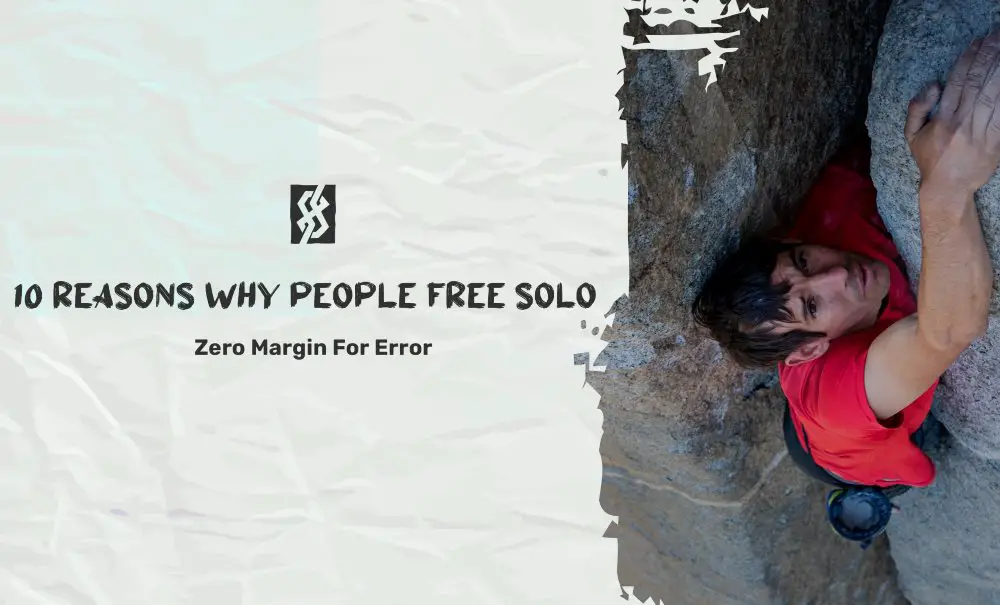Many free soloist have died trying, so why do it?
Free soloing, the act of climbing without the use of ropes or safety gear, is one of the most daring and controversial forms of rock climbing. While the risks are evident, the reasons why climbers choose to free solo are multifaceted and deeply personal.
What Is Free Solo Climbing?
Free solo is the discipline of climbing without safety. No harness, no rope, no pro and no belayer. Just you, the rock that’s in front of you, the shoes on your feet and the chalk on your hands.
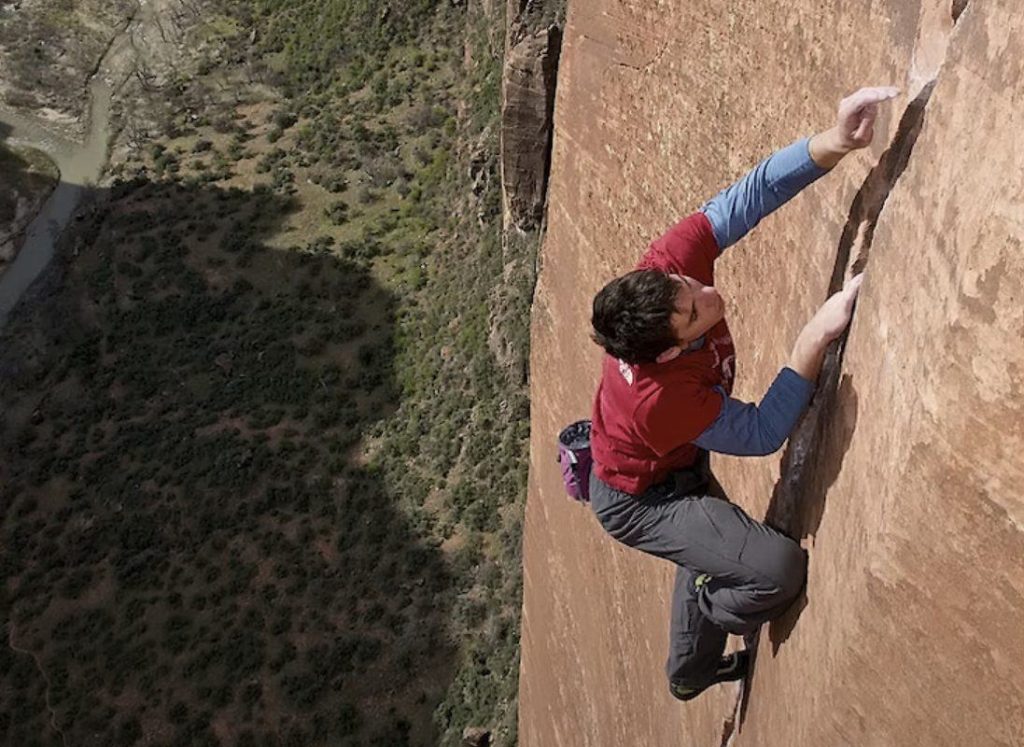
Free soloing is the purest form of rock climbing and the hardest one for people to grasp their heads around. Many people find climbing without ropes uncomfortable due to the perceived danger that comes with it.
With free solo, it’s simple. If you fall you die.
Every move is calculated, every breath is deliberate and the margin for error is zero. Free soloing is perceived as dangerous and reckless by many people, but at its core, free solo is the epitome of freedom and self-reliance; that’s why people free solo.
Why Do People Free Solo?
You don’t just wake up one day and go free soloing. As Alex Honnold, the best free soloist puts it, free soloing takes years of playing around in the mountains, scrambling and climbing to the point where you feel comfortable in that environment.
No free soloist wants to die.
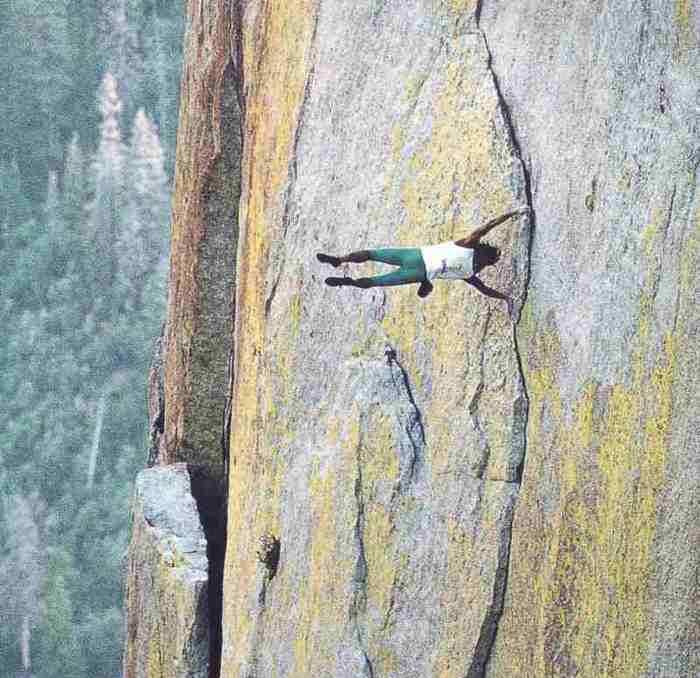
You condition your mind to work in extreme situations. Alex didn’t just walk up to El Capitan and started free soloing Freerider right then and there. Climbing El Cap even with a rope was a dream for Alex. He spent years dreaming about it and years climbing it, learning every move and every sequence like a choreographed dance. Visualization is key when free soloing, especially something that’s at your limit.
Reasons why people free solo is totally personal and subjective. Everyone has their own reason for why they want to climb without ropes, but here’s a few of the most obvious ones:
1) Pursuit of Pure Freedom
One of the primary reasons climbers free solo is the unparalleled sense of freedom it offers. Without the encumbrance of gear, climbers can move fluidly and naturally on the rock. At the elite level, free soloing is like walking in the park.
2) Mental Challenge
Free soloing is as much a mental game as it is a physical one. You become so in tune with your mind and body. The ability to maintain composure, focus, and clarity when one wrong move could be fatal is a challenge that some climbers are drawn to.

3) You Climb Better
When your life is at stake, you become a better climber. As Alex Honnold put it;
‘’I like the simplicity of soloing. You’ve got no gear, no partner. You never climb better than when you free-solo.’’
When you know you can’t fall, your body and mind are so focused, that you don’t think of anything else other than what’s in front of you. You enter the sought-after flow state.
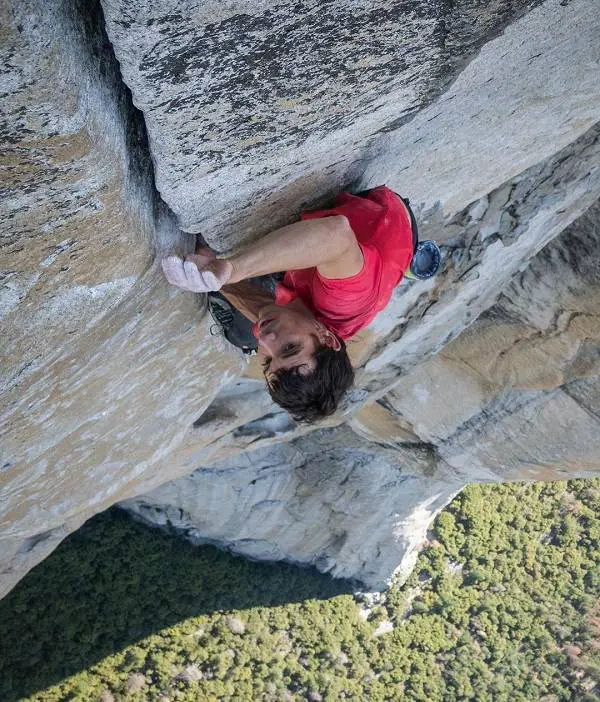
4) Deep Connection With The Rock
Climbing without ropes allows for an intimate connection with the rock. Every hold, every texture, every nuance becomes crucial. This deepens the climber’s appreciation and understanding of the rock they’re ascending.
5) Spiritual Experience
Many climbers, like Dean Potter, describe free soloing as a spiritual or transcendental experience. The combination of intense focus, the beauty of nature, and the heightened sense of being alive can lead to profound moments of introspection and clarity.
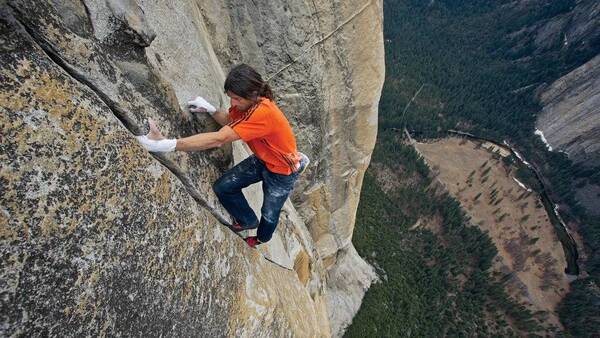
6) To Train For Harder Routes
Many rock climbers climb without ropes as a means to train for much harder routes. Dave MacLeod, one of the best trad climbers out there, free solos to condition his mind. When he was preparing for Echo Wall, Dave free-soloed Darwin Dixit (8b+), At the time this was one of the hardest free solo ever done.
7) Push Your Limits
When Alex Huber free soloed Kommunist 8b+ in Austria, he wanted to see how far he could take it. Once he successfully soloed the route, Alex said that was as far as he would push his limit.
Free soloing is the final test in your climbing, where you combine everything you’ve learned about yourself and about your climbing throughout the years.

8) Feeling Alive
‘When he free solos that’s when he feels the most alive. How could I take that away from him?’ – Dierdre Wolownick (Honnold’s mum).
When the stakes are high, you feel more alive. As sinister as this sounds, we will all die eventually, heck, you might die walking out of your house, so why not live life to the absolute fullest?
9) Escape Reality
Free soloing becomes a form of escaping reality – not just the physical world, but the internal world of self-imposed limitations and criticisms. On the wall, there’s no room for doubt or second-guessing. The clarity and focus required for free soloing provide a temporary respite from these internal struggles. It’s a space where you can be fully present, engaged in the moment, and free from the usual narratives that might plague your mind.
10) Pursuit of Perfection
Alex Honnold spent most of his childhood life feeling like he was never good enough. No matter how well he did at anything, it was never that good. If you’ve read his book ‘Alone On The Wall’ then you’ll know how self-critical he is. After he free-soloed Half Dome, Alex wrote in his diary ‘do better.’ Why?
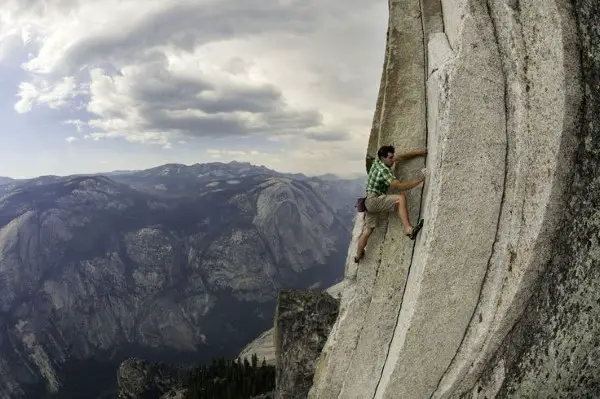
For us, free soloing Half Dome would be a tremendous achievement, but Alex wasn’t happy because his standards for himself were set incredibly high. This relentless pursuit of perfection, often stemming from a deep-seated sense of not being good enough, motivates him to constantly push his limits. In free soloing, he found not just a sport but a means of transcending his own self-doubt and criticism. Each climb is more than just a physical challenge; it’s a battle against his inner critic, a way to prove to himself that he can always do better.
Let’s take a moment to enjoy Alex Honnold in his flow state:
Header Image by ©Jimmy Chin



